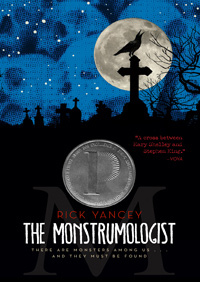This article was written by Jeff Greenfield, the Emmy Award winner, in Politico 08.13.17.

It’s long past Passover, but the latest effusions from Donald Trump bring to mind the question that begins that ritual: “Why is this president different from all other presidents?”
Would any past president have not understood the need to read the collection of racists, neo-Nazis, anti-Semites and the euphemistically labeled “white nationalists” out of the company of decent men and women, rather than make morally bankrupt talk of violence “on many sides” and dog-whistling about the need to “cherish our history”? Would any past president have compounded the felony with a dismissive, clumsy tweet? (“Condolences to the family of the young woman killed today, and best regards to all of those injured, in Charlottesville, Virginia. So sad!”)
But then, we have never had a president, of either party, or any political persuasion, so utterly disconnected from any understanding of our national history, of the still-unresolved fights over what it means to be a “real” American. Nor have we ever had a president who combines staggering historical and political ignorance with language skills that rank him somewhere around a developmentally challenged 9-year-old.
Consider how past Republican presidents dealt with controversies in which a political ally had crossed a clear bright line:
In 1976, on a flight after the Republican convention, conservative pop singer Pat Boone asked Gerald Ford’s agriculture secretary, Earl Butz, why the Republican Party couldn’t attract more black voters. “I’ll tell you what the coloreds want,” Butz said. “It’s three things: first, a tight pussy; second, loose shoes; and third, a warm place to shit.” When the comment was published in Rolling Stone—the author of the piece was Watergate figure John Dean—Butz was forced out of the Cabinet.
In September 1981, Interior Secretary James Watt was addressing lobbyists at a Chamber of Commerce breakfast meeting. Speaking about the different advisory panels offering guidance to the department, he said of one: “I got a black, two Jews, a woman and a cripple. And I’ve got talent.” The remark got hearty laughter from his audience, but the insulting nature of the comment drew enough fire that he left the Cabinet a month later.
On December 5, 2002, Senate Majority Leader Trent Lott spoke at the 100th birthday celebration of South Carolina Senator Strom Thurmond, who had run for president in 1948 on a segregationist third-party ticket. Lott said: “When Strom Thurmond ran for president, we [the state of Mississippi] voted for him. We’re proud of it. And if the rest of the country had followed our lead, we wouldn’t have had all these problems over the years, either.” It was likely meant to be a small piece of flattery, but the idea that America would have been better off with a segregationist president stuck a nerve, and President George W. Bush rebuked Lott. Speaking to a mostly black audience at a religious meeting in Philadelphia, he said: “Any suggestion that the segregated past was acceptable or positive is offensive, and it is wrong … recent comments by Senator Lott do not reflect the spirit of our country. He has apologized, and rightly so. Every day our nation was segregated was a day that America was unfaithful to our founding ideals.” Shortly thereafter, Lott stepped down from his post.
What these incidents illustrate is something more than the willingness of a president to reject offensive remarks from his side of the political aisle. They reflect an understanding that a president is not just the head of government, but the head of state as well. Ford, Ronald Reagan and Bush knew full well that the overwhelming majority of black voters would not be voting for them, but they could not permit such remarks to be deemed “acceptable.” These Republican presidents showed they understood that there were not “many sides” to a controversy when someone gives the back of his hand to one group of Americans or another, much less when someone turns his bigotry into a murderous attack on protesters.
Indeed, there was a time, not that long ago, when Republicans would actually campaign for the votes of African-Americans. Reagan gave a memorable speech to the Urban League in 1980, detailing what he called the failure of liberalism to make life better for American blacks. George W. Bush’s 2000 campaign speeches talked extensively about the failing schools in minority neighborhoods and “the soft bigotry of low expectations.”
And Trump? The simplest explanation is that “nationalism”—an outlook championed by Steve Bannon and Stephen Miller, and celebrated in his acceptance and inaugural speeches—is what’s behind Trump’s unwillingness to condemn the racists at Charlottesville. But think about it: Would any halfway rational political mind think that in condemning neo-Nazis and Klansmen, you would risk losing any part of your broader base? That crowd of losers in Charlottesville was tiny—no more than a few hundred people. Is there anything more than a small fragment of Trump’s supporters who genuinely sympathize with the white hoods and swastikas? (Some readers will no doubt answer yes, I know. I think otherwise.)
The more convincing explanation for Trump’s moral failure is that he is, and always has been, completely disconnected from any understanding of the American political tradition. It is why, uniquely among chief executives, he almost never quotes a past president or political figure or thinker, nor references any part of the country’s past. For Trump, there is no past; only himself, rising as a self-creation out of the mist. He feels no need to speak against the poison of bigotry because he has no clue about how that poison has infected our past, and still infects our present.
Among the many ways that Donald Trump is the most manifestly unfit president in American history, put this one near the top of the list.
For the article, go go:http://www.politico.com/magazine/story/2017/08/13/why-trump-cant-say-the-obvious-215481
Orrin Hatch, a Republican from Utah and the President Pro Tempore of the Senate, said in a tweet on Saturday: “We should call evil by its name. My brother didn’t give his life fighting Hitler for Nazi ideas to go unchallenged here at home.”
Barack Obama: “No one is born hating another person because of the color of his skin or his background or his religion…” “People must learn to hate, and if they can learn to hate, they can be taught to love…” “…For love comes more naturally to the human heart than its opposite.” – Nelson Mandela
Sen. Cory Gardner, R-CO: “Mr. President – we must call evil by its name,” “These were white supremacists and this was domestic terrorism.”
Advertisements Share this:





